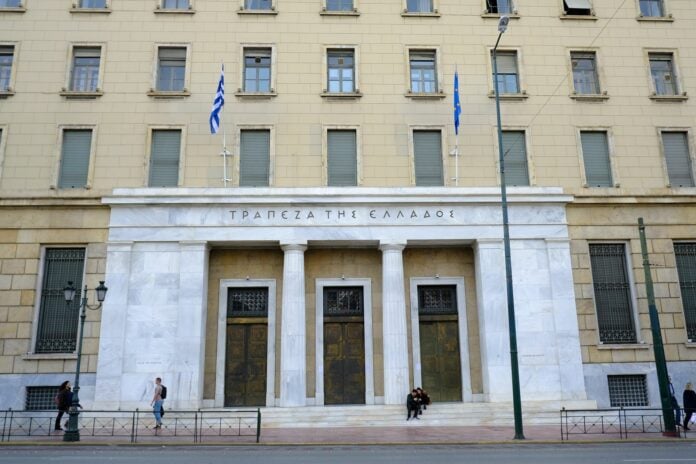The Greek banking sector has positive prospects, according to the Bank of Greece (BoG) Financial Stability Report published on Wednesday.
More specifically, the Greek sovereign’s return to investment grade mitigates the risks to the financial system and the outlook of the Greek banking sector is positive, the central bank said in the report.
However, it noted that heightened geopolitical risks, persistent inflationary pressures, economic growth slowdown and the risk of a sharp repricing of assets in international money and capital markets keep the risks to financial stability high.
Despite the above, banks’ profitability is improving, while the implementation of their strategies for resolving the legacy stock of non‑performing loans (NPLs) continues, it added. The banking sector’s capital adequacy is satisfactory, but banks should further shore up their capital buffers.
According to the Bank of Greece, the liquidity and funding conditions of the Greek banking sector improved further as a result of increased customer deposits and despite partial repayment of European Central Bank (ECB) funding.
As for the ratio of non-performing loans (NPLs) to total loans fell marginally to 8.6% in June 2023, from 8.7% in December 2022. It should be noted that all four significant banks have now reached their single-digit NPL targets, with one of them below 5%. However, actions aimed at resolving the legacy stock of NPLs and converging with the European average (June 2023: 1.8%) should be continued.














